Sidebar: Robert Butler on Shane
December 6, 2023
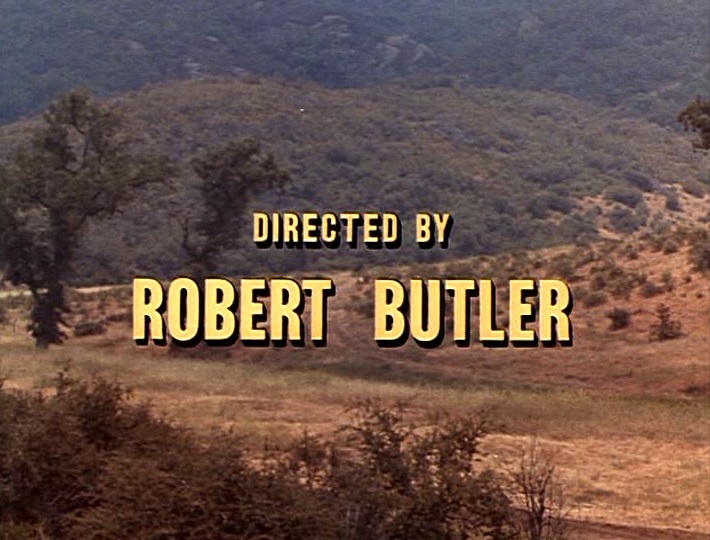
When I was researching this piece on Shane in 2018, I reached out to the director of the first episode, Robert Butler, via my friends at the UCLA Film & Television Archive, where Butler was a familiar presence at screenings. At the time Butler was one of two surviving Shane directors – the other, Gary Nelson, died in 2021 – but his contributions to “The Distant Bell” were clearly of outsized import in setting the tone of the show. Even though, as Bob explained, this assignment largely preceded Butler’s reputation as a go-to pilot director, and the Shane premiere wasn’t technically a pilot anyway.
My initial hope was that Butler would have a lot of stories to tell about his collaborators on Shane and the filming of “The Distant Bell,” but in fact he remembered little about the making of it. What Bob did do, though, was pay a visit to UCLA to screen the film again in preparation for our interview. As a result, our conversation became a fascinating exercise in which Butler critiqued his own work of more than fifty years ago. Although they lack the detailed recall and juicy anecdotes of Butler’s comprehensive Archive of American Television oral history, I think his remarks are of some interest.
What were your thoughts after you watched your Shane episode again?
Well, they were mixed. It was generally really high quality stuff. It seemed a little too good, a little too classy, which would come from Brodkin, obviously, when I think about the traditional westerns. Maybe a little too surprising for traditional television. The western hits that were kind of dying at that time, I think of the Warner Bros. westerns, were pretty on the nose and pretty usual and pretty expected and unsurprising. The exception being Gunsmoke, which was generally very fine. I thought Shane – that single episode, because I don’t remember many of the others – my wife and I watched them kind of religiously, and we thought the stories were very classy, and I remember particularly an episode where a young senator woos the widow, which was an extremely good episode, I thought. David Shaw was certainly a good guy, and I remember Denne Petitclerc as being a really creative guy.
Were you already well-known as a pilot director when you were hired to direct the first episode of Shane? Was Brodkin in essence hoping to give the premiere the feel of a pilot?
I don’t think quite yet. I don’t know the dates on Hogan’s Heroes, which would have been the first pilot I actually directed. The Defenders preceded Batman, so, yeah, Brodkin wouldn’t know me as a pilot director, he would know me as a damn good assistant [on Playhouse 90] and then as a very good episode director on The Defenders and on the English show [Espionage]. So when Shane came along it would be terrific of him to ask me to do the first episode, since there was no pilot. He said, incidentally, after a few days’ dailies on The Defenders, he said, “Well, Butler, you’re going to have to move to New York.” Which was him saying he wanted me to work for him a lot. Obviously I have a lot of respect for Brodkin. I owe him a lot, actually. He had a very technically green, untried director setting the tone of his show. So I think he took a big chance.
How would you characterize your contributions to that Shane episode?
What I bring is simplicity and clarity. I saw that in much of the work in Shane. David [Carradine], I thought, was very, very good. I thought Jill Ireland [chuckles] had a great hairdo. It was oddly hip and period, both exactly at the same time. It was very good.
I thought the whitewash on Ryker was a little overdone, and also, the script having been written by a green writer, I realized there was no realistic nonsense. I mean scripts must have, “Pass the salt. Don’t you have any pepper in this place?” They must have those grounding, naturalistic warts in them, or they seem a little too earnest and tend a little too much to business. I noticed that what I consider weakness in the script. But I saw the sense and the decency and the honesty and credibility being imparted to the characters. Of course that’s not all me. That’s them, that’s the material, that’s Brodkin and his assistants on a high bar. But that’s what I see myself having brought.
It was a little too tight, and I noticed in your Defenders article, you alluded to Brodkin, and I have a vague recollection of that, of a “Brodkin” being that medium tight closeup that was so evident in the first episode of Shane. So whether I was following my own instincts that coincided with his, or whether I was responding to the boss’s request, I don’t remember. Some of the moves, some of the camera moves, were very good. The staging was very good. And that’s me learning from the directors at [CBS] TV City on Playhouse 90.
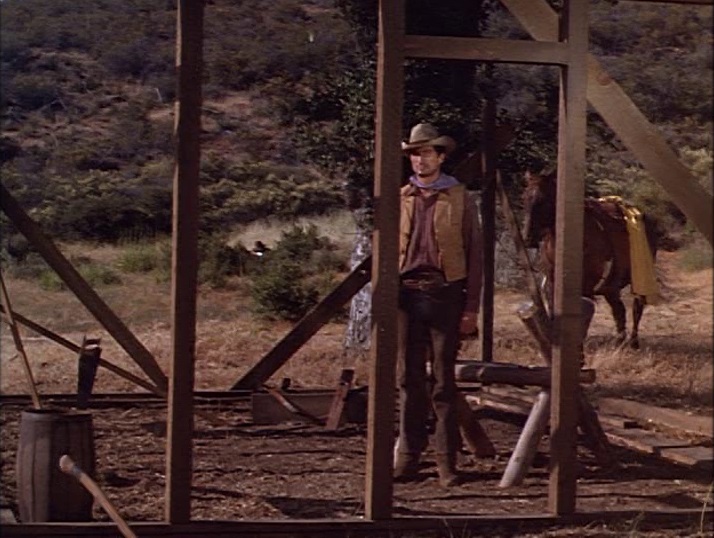
I think the climactic gunfight in that episode is brilliantly choreographed.
Well, thank you. I was impressed with that, too, and I must give the writer some of that, because that backup rifleman to the six-gunner was a concept I had not seen before and I have not seen since. It just looks like a good standard historically accurate western piece of behavior. That knocked me out. Yeah, that was great.
This is a question to us, and the audience, wondering about the script: Did we buy, completely, a school in a saloon? Is that okay? Did you have any doubts about that?
No, that didn’t bother me, actually, until you brought it up. It seems in keeping with the idea of a frontier town that’s just starting to be built.
That’s good. That’s what the world undoubtedly thought of it. When I saw it, I thought it was a little too convenient, a little too designed. What I would do now is not try and change the concept, because I respect the concept though I question it ever so slightly. What I would have done was set the saloon, the bar, slightly different from the movie and have an area, just some sort of an area where you could cordon off, separate, a dozen kids and a teacher from the body of the saloon. As opposed to being strongly set right there [by the swinging doors].
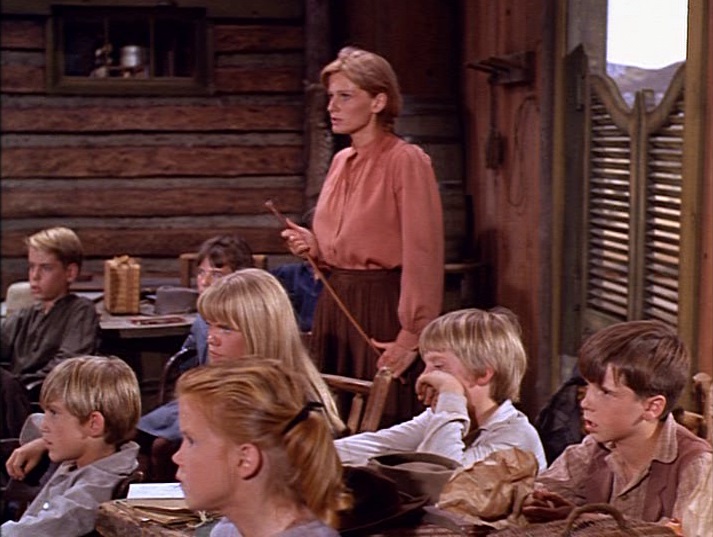
Did you have any role in casting the series?
I would guess that the major parts had been cast ahead of my being hired. The first four or five or six people, and I might have been instrumental in casting the smaller parts. I don’t know, but that would have been typical at the time.
What do you remember about directing the actors in Shane?
It was theater with cameras. That was certainly the way Television City ran, and even with a single-camera western, there would have been lingeringly that theatrical tradition of the writer, the word, the close-up conveying more emotion and more content than you could without it. A lot of that goes to Brodkin plus the other men you’re talking about. At Television City, as an associate director with all those good directors working, I knew, not firsthand but close second-hand, how directors handled actors. And part of my feeling that they were removing silliness comes from that experience. Because what the directors were doing was trying to make the performance invisible and trying to make the story and the character plow through. That was the essence of what was going on, and it was natural that I would follow that pattern. So when I watch Shane I see the people being sensibly real, being credible, being recognizable, being identifiable, so that suspension of disbelief is easier, so that you can just fall right in with the characters and ride with them. I see that going on in the show, which is a big commendation to [Brodkin] and me.
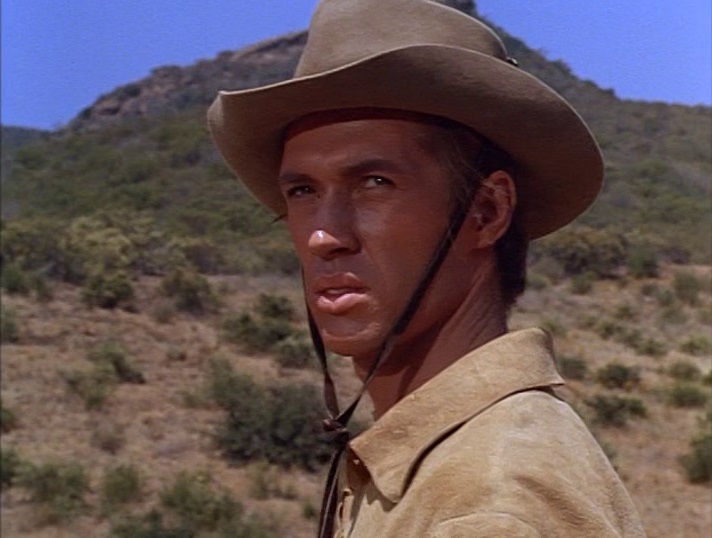
What do you remember about directing David Carradine?
I liked what he did a lot. It was a little larger than necessary, but not objectionably so. And he looked good in the part. He could, in quotes, wear the hat. That was a big point then about westerns. Can the guy wear the hat? I remember David as being easy and effective. I remember hearing at the time that he had been very, very stylized in a prehistorical play [The Royal Hunt of the Sun]. Apparently one of the reviews had said that he had done a very fascinating sing-song kind of English to indicate the original native language. I typically would think, whoops, this guy’s going to over-stylize whatever he does. So I was very on the alert to anything overstylistic that he would do. And seeing the show the other day, I don’t think he was at all. He and I got along well. Jill Ireland, I don’t remember. I liked the villain who gets shot, and whose body is never accounted for. Are the children going to arrive the next day, and will the body still be there? [Laughs.] I liked that villain. I thought that guy [Lawrence Mann] was really spot-on. I almost saw no acting whatsoever.
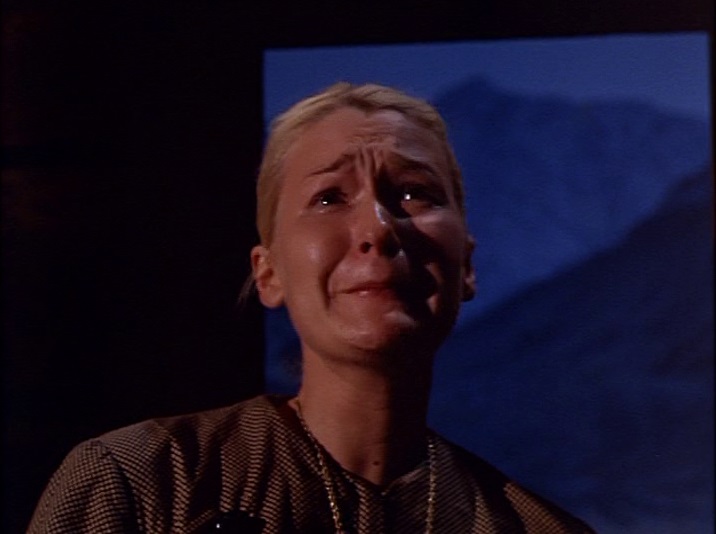
And Diane Ladd is in it, too.
Yes, she and I worked together many times. I think that was the first time we worked together. Good gal, good lady. She was a little much, for my taste, but I’m really a minimalist. And Bert Freed. I thought Bert was a little New York for that guy.
Right, Freed had worked for Brodkin a lot in New York, and I remember thinking he was kind of the New York idea of what a Western bad guy would look like.
Yeah, I agree with you.
What do you remember about the director of photography? I think he really lit Shane very beautifully.
I liked his work too. Dick Batcheller. I remember that he was a very stylish guy in his clothing. Very sharp guy, and a very pleasant guy, very easy. Must’ve been very knowledgeable, because also I remember that he wasn’t an older guy. At that point in my life it was mostly older guy cinematographers, and he was not.
Robert Butler died on November 3, 2023, two weeks before his 96th birthday.
December 6, 2023 at 8:18 am
Thanks. That was interesting. On “Star Trek”, I have read where Butler objected to the clean look of some of the interior sets when making “The Cage”.
I thought how I have read plenty of accounts where writers were disgruntled working for Gene Roddenberry on the original series. This was the only time I have known when a director had objections too.
December 6, 2023 at 1:06 pm
Stephen, great to have you back for a while, and in superb form. Excellent article.
I was a freshman in 1966, and I could never get anybody to vote with me to watch “Shane” on Saturday nights. Almost everyone in the lounge wanted to watch Gleason.
To quibble a little, I thought Jill Ireland was heartbreakingly lovely in the Jean Arthur role. And Bert Freed was strong and complex as Ryker.
But I agree completely with your praise of Bradford Dillman and Constance Ford. J. D. Cannon and Warren Oates were also good in episodes..
I thought the opening credits of “Shane” could have been more compelling. Seeing that kid running and shouting Shane and then saying “I love you, Shane” at the beginning of each episode had me rolling my eyes. Too sweet. I think it turned off a lot of potential viewers. Even though the kid was good in the role.
I think David Shaw did a fine job as producer. He found good stories and writers. I would have liked to see Shaw and Peter Stone produce a 70’s lawyer show that focused
a little more on mystery and romance, rather than social issues.
Even though you are probably not looking for suggestions on future articles, I will nominate: “Hong Kong”, “The Eleventh Hour”, “Stoney Burke”, “The Rebel”, ‘The Lieutenant”, “Breaking Point”, “Slattery’s People”, “Channing”, “The Man Who Never Was”, and “Hawk”. (Assuming you haven’t already done articles on them.)
Carradine was considered for the role of “Hawk”,’ according to one source. “Hawk” was on the same season as “Shane”. Both were cancelled in mid-season. Both lead actors survived the career body blow.
The first regular episode of “Kung Fu” concerned a struggling, beautiful blond widow with a son and a farm who gives Caine work. Lara Parker played the woman. The same set-up as the TV “Shane”. John Saxon played the villain. According to imdb, Saxon was originally offered the role of Caine.
Your interview with the straight-thinking Robert Butler was magnificent. Everything out of his mouth was astute and compelling. Just like you. Be well.
December 14, 2023 at 3:35 pm
Compelling, as always — very interesting to see your interview with Robert Butler who is such a presence throughout the history of television.
April 12, 2024 at 10:46 pm
The only other time I’d ever seen a rifleman backing up someone in a gunfight using a six-shooter was in the debut episode of the long-running “Lawman”. John Russell’s character was facing two men trying to avenge the death of their brother. Russell met them in the street for a showdown when the two brothers separated to make it impossible for Russell to shoot at them both. The situation was resolved when Russell aimed at one and heard a second shot go off. He turns to find Peter Brown, whose character was trying to get Russell to hire him as a deputy, holding a smoking rifle.